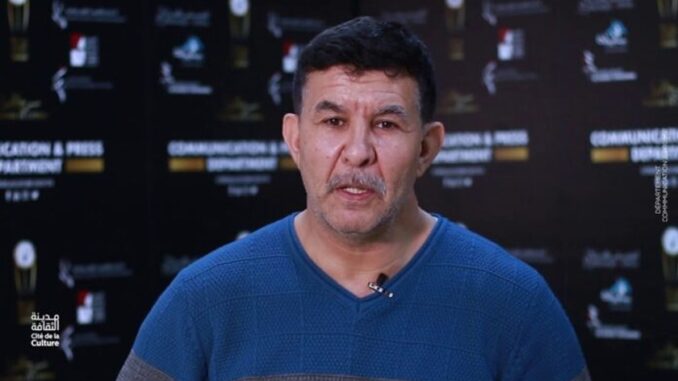
The National Union of Tunisian Journalists (SNJT) on Thursday condemned the arrest of Al Jazeera Tunis bureau journalist Samir Sassi during a raid on his home by the National Guard’s Terrorist Crimes Investigation Unit in Ettadhamon district.
The SNJT denounced in a statement the journalist’s “abusive detention” for more than 12 hours and the fact that he was taken to an unknown destination without informing his family.
According to the union, this is a violation of the right to defense guaranteed by Law No. 2016-5 of February 16, 2016 amending and supplementing certain provisions of the Code of Criminal Procedure.
The union said a National Guard unit searched the journalist’s home before confiscating his computer, telephone and the mobile phones of all his family members and taking him to an unknown destination. It was only Thursday, that his place of detention was revealed.
The SNJT added that Samir Sassi’s lawyer stated that the unit in question had received an order prohibiting the presence of a lawyer for 48 hours. Suspicions of terrorism could be linked to this case, according to the lawyer.
Samir Sassi is the second Tunisian journalist to be arrested in a week. On December 28, 2023, Zied El Heni was arrested and detained, following a broadcast on the private radio station IFM wherein he criticized the Trade Minister. His detention was described by rights defenders as part of a crackdown on independent journalists and dissent since President’s Kais Saied power grab in 2021.
In 2023, 30 journalists were arrested in Tunisia, according to the International Federation of Journalists (IFJ).
In an open letter to Saied published on Thursday, the IFJ expressed its “deepest concern at the frequent imprisonment of journalists, in total contravention of the provisions of the Tunisian constitution in respect of freedom of expression and the media.”
Last summer, the UN human rights chief, Volker Türk, said he was “deeply concerned” about the crackdown on media in Tunisia, with vaguely worded legislation used to criminalize criticism.
Seventeen journalists in Tunisia currently face trial, according to local media.
Heni and some other journalists have been prosecuted under the provisions of decree 54, which punishes those accused of spreading “false news” with a prison sentence of up to 10 years.
The legislation “is being used to silence journalists and opponents of the president,” Anthony Bellanger, the general secretary of the IFJ, said earlier this week, accusing the Tunisian government of “attacking journalists.”
